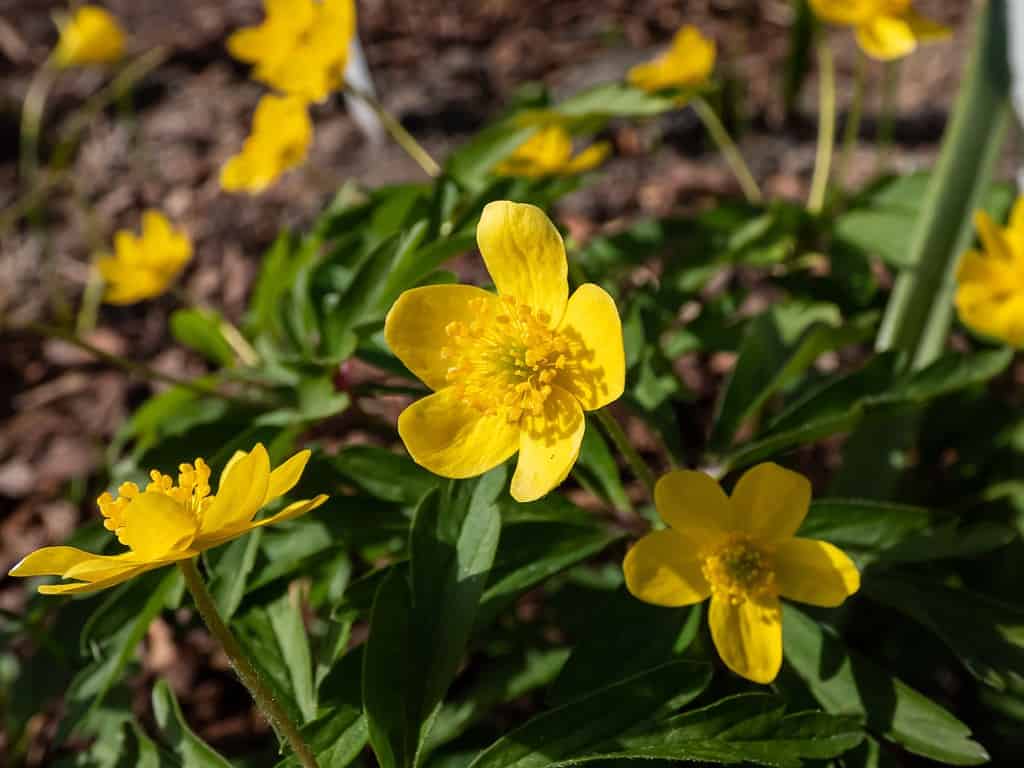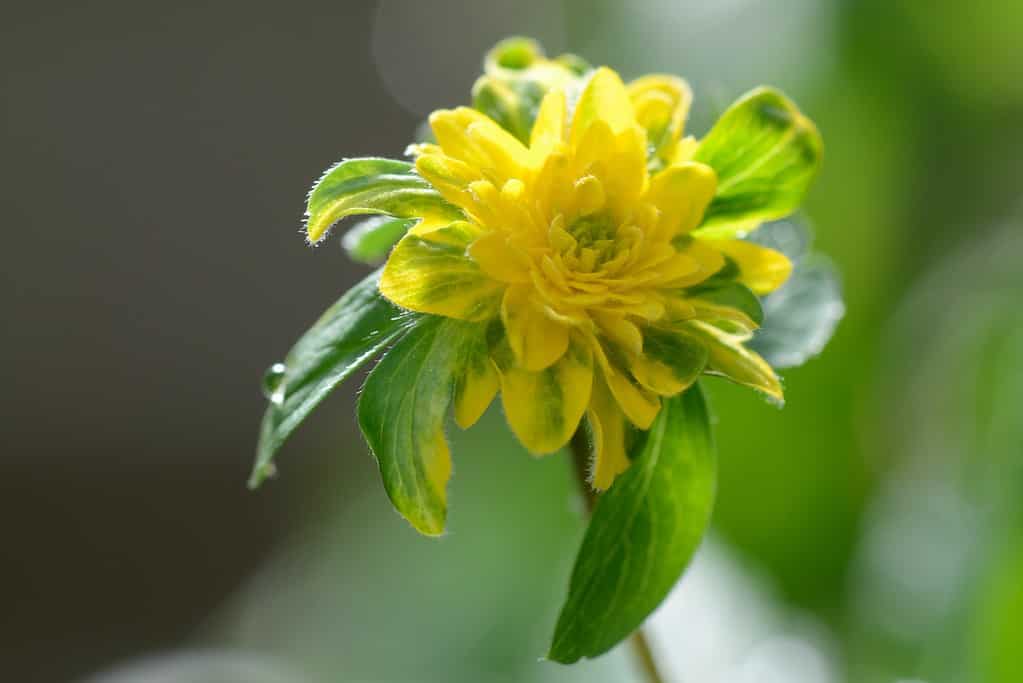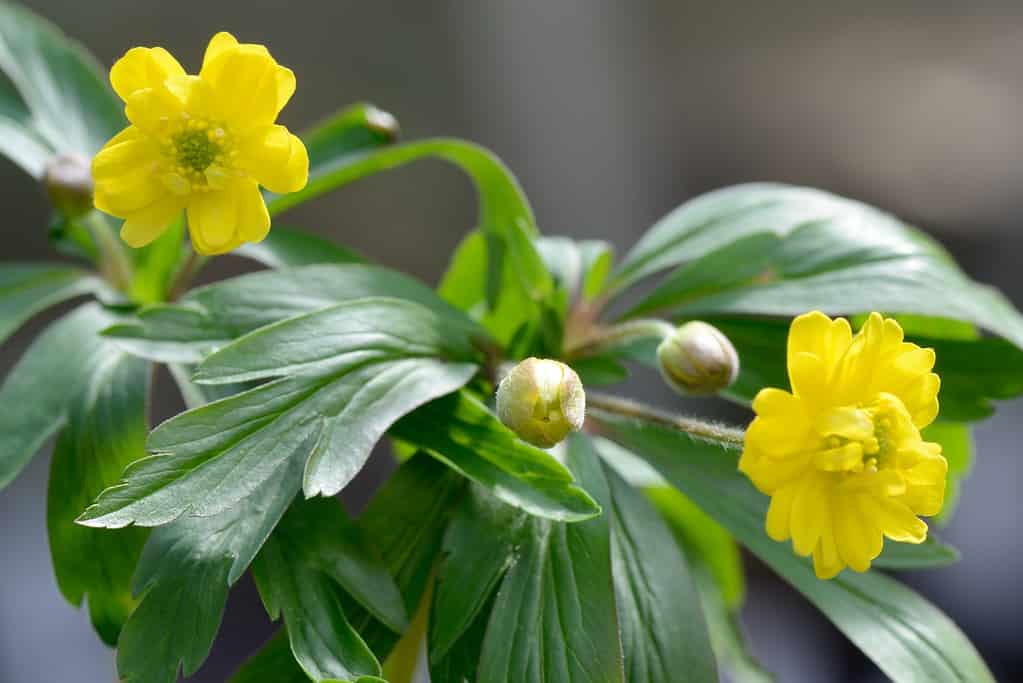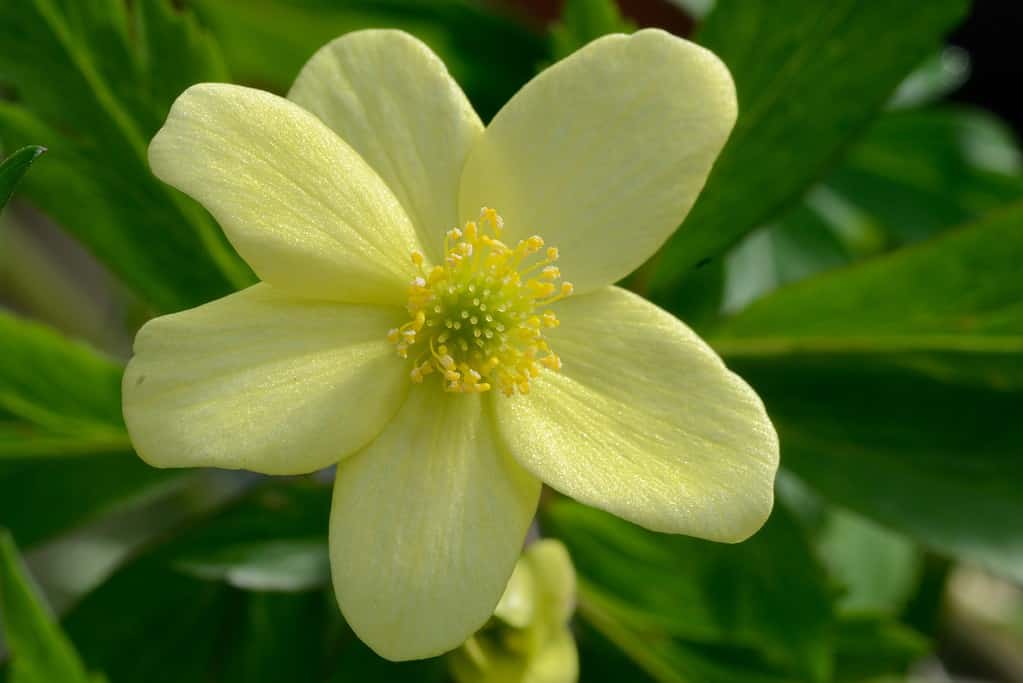Yellow is perhaps the least common shade of anemone flower. Many anemones come in shades of white or pink with yellow centers, though, so many folks mix and match the colors to create a cohesive shaded plant bed.
There are three common yellow anemones that you’ll find available, with a few cultivars and varieties springing off of these.
Yellow Wood Anemone

©Kristine Rad/Shutterstock.com
The most commonly recognized and used yellow anemone is the yellow wood anemone. It’s often also called the yellow anemone or the buttercup anemone. The plant is an herbaceous species that is perennial. It grows natively in forests and woodlands in western Asia and Europe, with some appearances in the Mediterranean region. The plant is known as Anemonoides ranunculoides botanically.
The plant grows to between 2 and 6 inches in height, from rhizomes. The flowers die back by mid-summer and spread beneath the soil surface and rapidly multiple in the proper woodland conditions. The flowers have 5 to 8 tepals in bright yellow coloring, typically at .59 inches in diameter. They typically bloom between March and May in their native regions. The flowers are naturally distributed from southwest Siberia to the Caucasus Mountains in Turkey and have been introduced in the UK and naturalized in Quebec.
These beauties are popular among rock and alpine gardeners.
‘Pleniflora’

©Walter Erhardt/Shutterstock.com
The Pleniflora, or Flore Pleno, is a double-flowered form of the yellow wood anemone. This cultivar has received the Award of Garden Merit by the Royal Horticultural Society. It is hardy throughout the British Isles and areas with a similar climate.
‘Frank Waley’
A larger cultivar of the yellow wood anemone is the ‘Frank Waley’, considered a more robust option.
‘Wockeana’
The ‘Wockeana’ is a smaller subspecies, considered a miniature.
‘Luciniata’
The ‘Luciniata’ is another miniature selection of anemone cultivars, which has finely divided leaves.
‘Semiplena’

©Walter Erhardt/Shutterstock.com
The ‘Semiplena’ is hardy in Grow Zones 4 to 8 and loves full to partial shade. The flower only grows to a maximum of 4 inches in height in early spring.
‘Pallida’ (Anemone x lipsiensis ‘Pallida’)

©Walter Erhardt/Shutterstock.com
The Anemone x lipsiensis ‘Pallida’ is a natural cross between the yellow wood anemone and the Anemonoides nemorosa (wood anemone), often occurring where the two plants grow near each other and are cross-pollinated. The Pallida has pale buttery flowers that are creamy and almost white in some cases. They prefer cool, moist locations in wooded areas, where they slowly spread and form naturalized colonies. They are dormant in the summer and bloom in the spring. They are considered a nursery hybrid. They are hardy in USDA Zones 4 to 8. They need partial shade and grow up to 4 inches tall.
Pulsatilla alpina sp. sulphurea
This anemone is a perennial that comes in yellow, sulfur yellow, and gold. They flower naturally from May to August in Hardiness Zones 5 to 8. They are favored among rock and alpine gardeners. They require sowing in warmer temperatures, despite thriving in cooler places, in temperatures between 64 and 72-degrees F. The beautiful flower has received the Award of Garden Merit from the Royal Horticultural Society.
The post 8 Types Of Yellow Anemones appeared first on AZ Animals.
from Animal News, Facts, Rankings, and More! - AZ Animals https://ift.tt/uHFe8pX